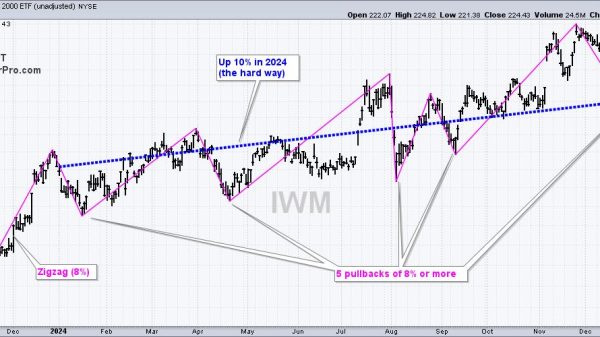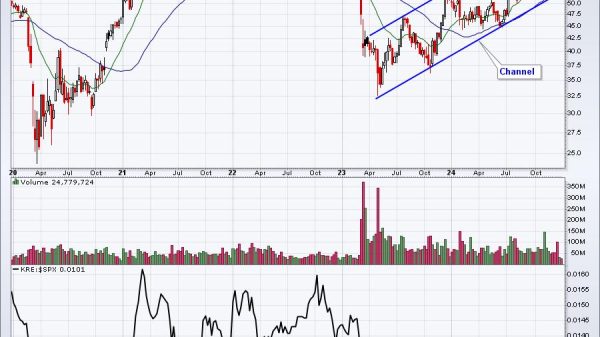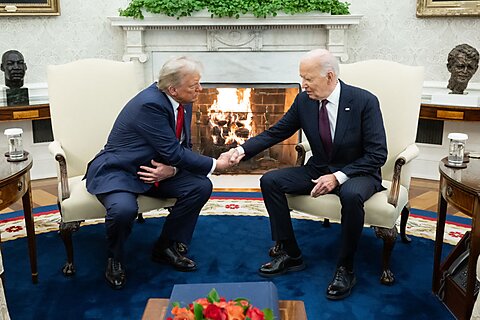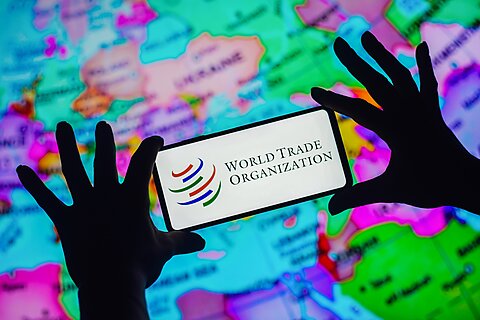Clark Packard and Alfredo Carrillo Obregon
April marks the thirtieth anniversary of the signing of the Marrakesh Agreement and the culmination of the Uruguay Round of multilateral trade negotiations, which converted the General Agreement on Tariffs and Trade (GATT) into the World Trade Organization (WTO).[1] Today, the WTO has 164 members (it will expand to 166 as Comoros and Timor‐Leste were approved for membership at the thirteenth Ministerial Conference in Abu Dhabi in February), which encompasses 98 percent of global trade.
As Larry Summers once remarked, “The Uruguay Round was the largest tax cut in the history of planet earth.” Indeed, as shown in Figure 1, since the WTO’s founding, tariffs and other barriers have fallen substantially—facilitating a more than fivefold increase in global trade between 1994 and 2023. Over the same span, global trade as a share of global GDP has increased from 19.9 to 29.9 percent.
As global trade has increased sharply with more exports from low‐and‐middle‐income countries, global poverty has fallen precipitously. A recent blog post from the WTO’s Secretariat notes that the percentage of global citizens living in poverty fell from 38.1 in 1996 to 10.6 percent in 2022, as shown in Figure 2.
This is a humanitarian story worth highlighting and much of it is due to the multilateral trade liberalization achieved through the WTO.
Despite these tremendous gains, globalization is facing its most serious challenges since before World War II. Protectionism is clearly on the rise: the two largest economies in the world, the United States and China, took their trade spat outside of the WTO system and imposed massive tariffs on each other. On top of that, trade‐distorting industrial policies are once again in vouge around the world.
Last fall, Cato launched its Defending Globalization project, which aims to cut through the noise about globalization while at the same time making an affirmative case for more integration. As part of the project, my Cato colleague Jim Bacchus, a former chairman of the WTO’s Appellate Body, penned an excellent essay dispelling some common myths about the WTO, including showing that the system does not undermine US sovereignty, is not biased against the US, and does not harm the US economy. On the latter point, for example, a study by the Bertelsmann Foundation in Germany found that WTO membership increased US GDP by approximately $87 billion between 1995 and 2020, thus economically benefiting more from the system than any other country.
More multilateral and plurilateral (with some but not all members of the WTO) liberalization is desperately needed to help restore the WTO’s centrality in world trade, particularly better disciplines on subsidies and digital trade. Likewise, reforming the WTO’s dispute settlement system should be a priority. But at a time of growing criticism of the multilateral trading system and creeping protectionism, the WTO has served and continues to serve a vital role in the global economy. And that’s worth celebrating.
[1] For an in depth look at the policy and political debates in the lead up to the signing see this excellent history by John Schmidt, the lead US negotiator in the talks
























